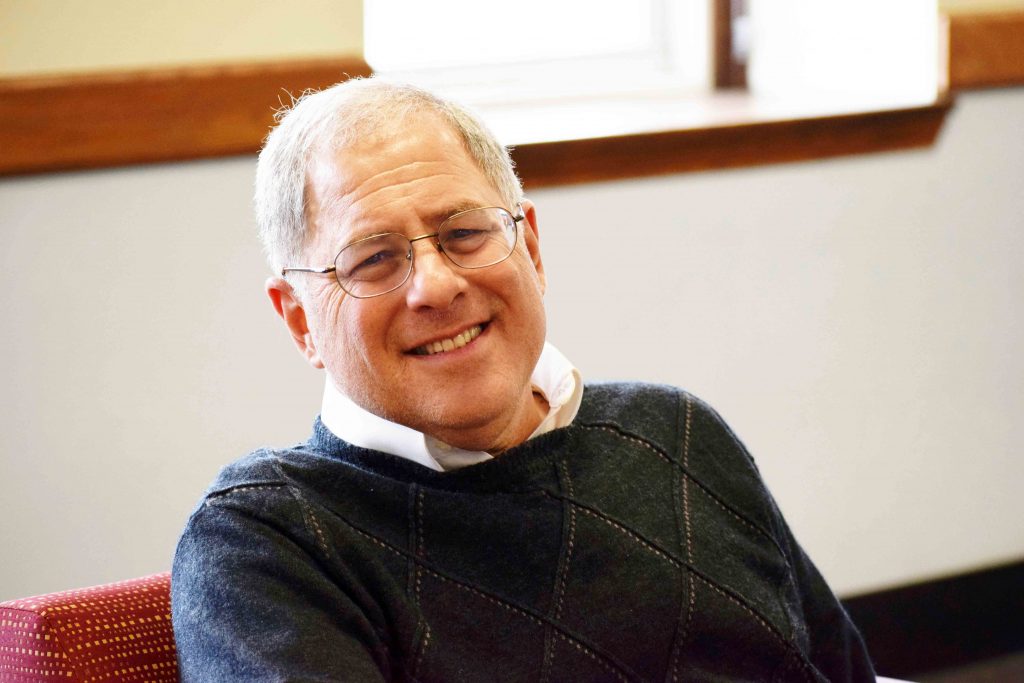Hon. Phillip Weiner ’80, who has had an illustrious career as a prosecutor, judge, and trainer in international courts and tribunals from The Hague to Cambodia, gave the annual Owen M. Kupferschmid Memorial Lecture at BC Law on September 29. He talked about improving legal systems in post-conflict and developing countries in Europe and Asia.
“When doing this you quickly learn that establishing the rule of law or changing the legal system is no simple task. It is costly, difficult; it’s a process that takes years to accomplish, and trying to do so in a post-conflict country is much harder,” Weiner said. “While it seems so simple on paper, there are impediments or roadblocks at all stages.”
Issues related to politics, prejudice, culture, religion, nationalism, fear of change, and most importantly, corruption, give rise to these kinds of difficulties. “Even conducting a simple judicial training can raise unexpected problems of prejudice, hatred, and tradition,” he noted.
Such hatred between countries can prohibit even the easiest, simplest judicial programs from taking place, which speaks to how challenging it is to develop entirely new legal systems. The first step is to establish what type of system is needed, Weiner said. “In order to decide, you have to sit there and say, who will make this decision? Can the local government make the decision?”
That’s how it should work, he argued, but sometimes a new system is just imposed on a country without buy-in from legal authorities. “Imagine, you’re teaching in a developing country to lawyers and judges about rights and democracy and then you impose a legal system on them without their approval,” Weiner said, noting the irony. “The goal should be to recommend a system or persuade them to adopt a certain legal system, but not force it upon them.”
In Weiner’s experience drafting procedural rules for new legal systems, he found it highly beneficial to involve local judges and attorneys in the drafting process. “If local judges and attorneys aren’t involved, they aren’t going to buy into it,” he said. “There will be disagreements over the rules and other issues, so you must learn to pick your battles.”
Training lawyers and judges brings a whole other set of challenges.
Sometimes the issue is a lack of books and other training materials written in foreign languages. “Try to find a book on the law of evidence or trial advocacy published in a local language in Eastern Europe, Southeast Asia, or the Balkans,” Weiner said. “They just don’t exist.”
Other times it’s unqualified trainers—in great numbers. Weiner explained that international advisors will bring in trainers who know nothing about local laws or procedures. He offered the example of a young attorney working for a major training NGO in Europe. The man was fresh out of law school and had never worked in a courtroom or tried a case. His job was to train judges.
“So, what can we do?” Weiner asked. “First, we must provide high quality training that’s constant, comprehensive, and tailored to the particular legal system. If the older judges cannot be changed, then focus on training the new generation. When the older judges see such great programs being conducted, they’ll want to participate too.”
Weiner remains hopeful. “Do the best you can in each situation. You may not be able to change everything, but, rest assured, you can still accomplish a great deal,” he said. “By improving the skills of the judges and by changing the legal system, you can make it better.”
Weiner concluded with a message to current and future generations of lawyers. “I hope that someday you’ll have the opportunity to improve human rights and bring the rule of law to a country in the world. If you do so, you will fulfill Owen Kupferschmid’s dream of bringing human rights to those places where it does not exist, of bringing aid to developing countries, and making this world a better place,” he said.
The Owen M. Kupferschmid Holocaust/Human Rights Project is named after its founder, a 1986 Boston College Law School graduate. Launched in 1984, the project’s goal is to ensure that the precedential value of Holocaust-related law is fully realized and applied to state-sponsored human rights violations today.


